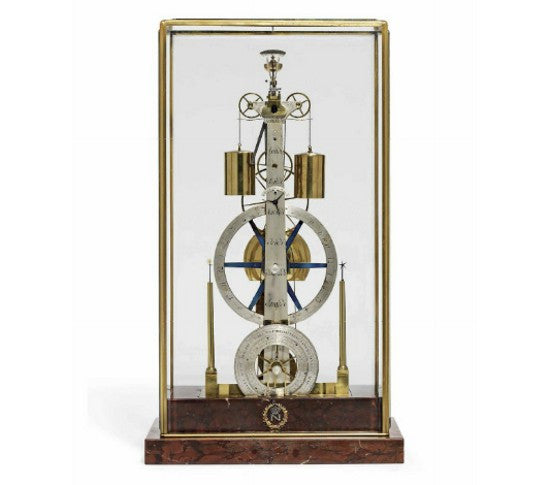A skeleton regulator clock by Abraham-Louis Breguet is among the headline lots at Christie's Exceptional sale on July 10 in London, with a valuation of £700,000-1m ($1.1m-1.7m).
The piece, which dates to 1787 and features both Gregorian and Revolutionary calendars, is one of only a handful to survive to the present day.
 Breguet designed and built the skeleton regulator in the late 18th century |
The Revolutionary calendar was briefly adopted in France at the end of the 18th century and split the day into 10-hour blocks, with each hour split into 100 minutes made up of 100 seconds.
Predictably the experiment proved unpopular with a public already accustomed to standard time and was consigned to history in 1795.
The clock was formerly owned by Courtenay Adrian Ilbert (1888-1956), a notable horologist whose collection was acquired by the British Museum in 1968 following a donation from high street watch and jewellery store H Samuel.
The clock offered in the sale is one of the few exceptions that were kept by Ilbert's family.
Breguet (1747-1823) is one of the most recognisable names in clock making and patented a wealth of innovations - including the tourbillion in 1801.
In November last year a previously unrecorded pocket watch made $1.1m in a sale at Sotheby's in Geneva. Another example made $40,000.
We have this Longines Men's Olympic Series watch available.
Want to keep up to date with all the latest on collecting? Sign up here for our free newsletter.






